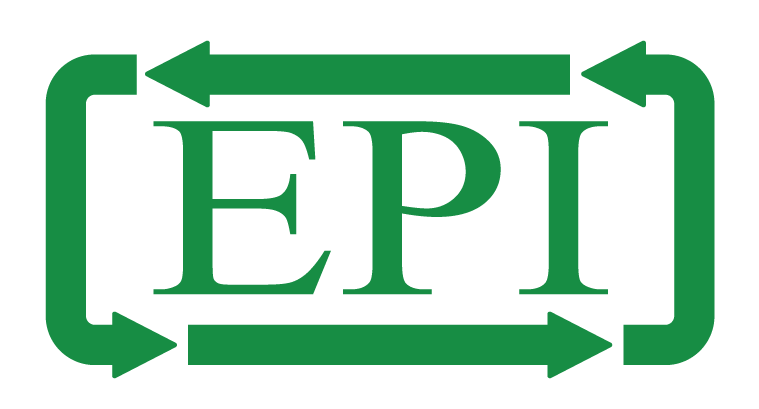Water Recycling and Water Treatment
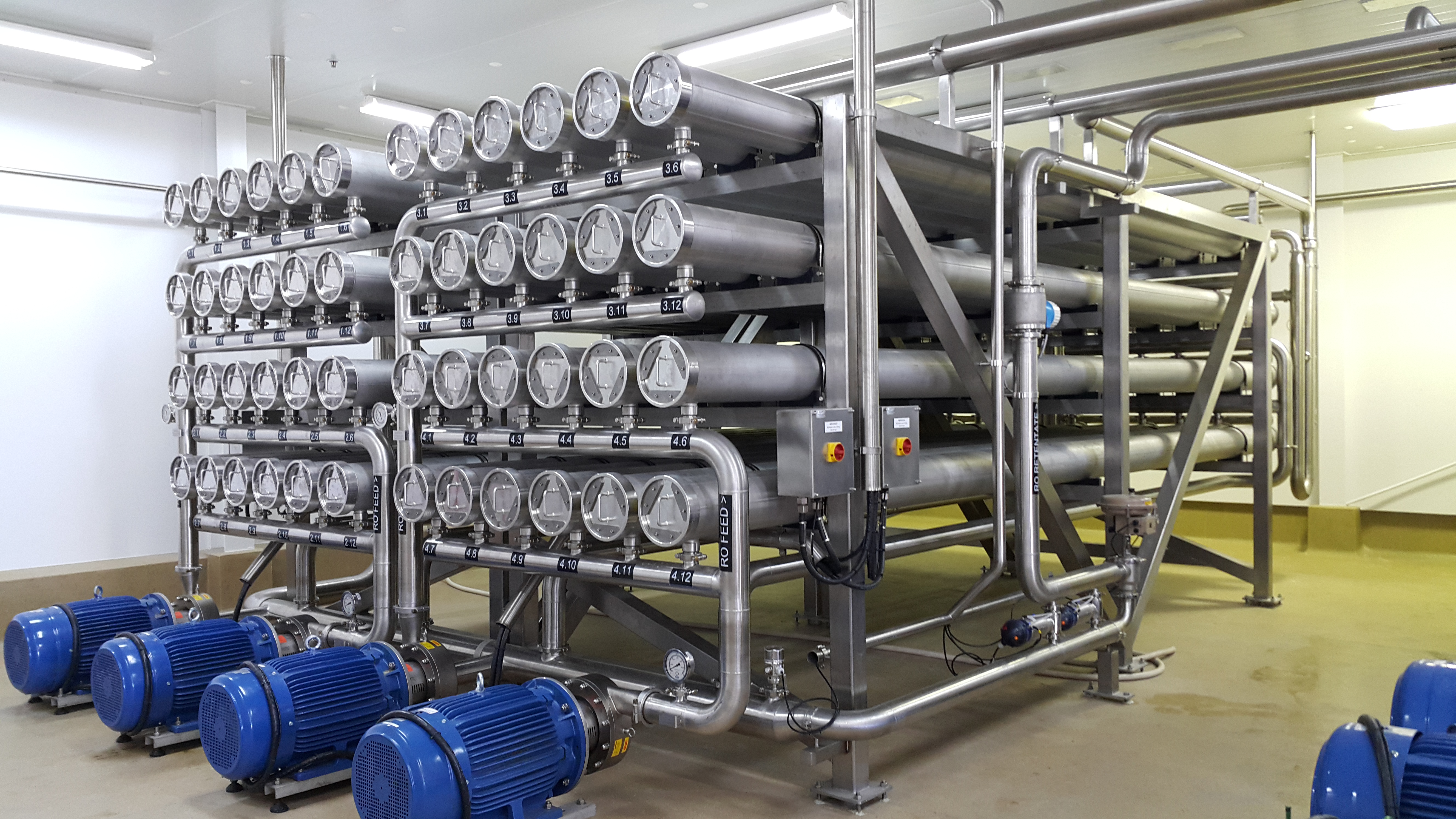 We have the experience to design capture, treatment and re-use systems to harvest an increasingly important water source – recycled water. Our sanitary processing background gives us the ability to process these streams to a very high quality level – an increasing requirement as standards for recycled water get closer and closer to potable.
We have the experience to design capture, treatment and re-use systems to harvest an increasingly important water source – recycled water. Our sanitary processing background gives us the ability to process these streams to a very high quality level – an increasing requirement as standards for recycled water get closer and closer to potable.
Ideally, fairly clean streams are captured at source so that they are not contaminated. Usually these streams have components that prevent them from being re-used around site. This contamination could be from solids, high BOD, bacterial loading, odour, colour, high TDS, mineral content, proteins or sugars. All of these streams can be cleaned up with a suitable process design. This often includes pre-treatment, membrane processing, post-treatment and re-use systems.
Summary of activities:
Membrane Plants
Engineering
Process Improvement
CIP Optimisation
Strategic Planning
Site Audit
Contact us to discuss your particular application

High Purity Water
If you need a specialised high purity water such as low nitrate, low chlorate, low fluoride demands we can deliver combination systems including pre-filtration, sterilisable GAC (activated carbon), ion exchange, RO and more. From sample analysis we provide the appropriate process treatment, so that specific analyte profiling is achieved.
Puretech Process Systems (UK) Ltd are represented by EPI. The Puretech GenesysWFI system delivers pharmaceutical grade premium quality water for injection or purified water in compliance with cGMP guidelines as per FDA and EMEA, EP, JP and USP standards.
Downloadable information may be found at: PURETECH-Genesys.pdf. Please contact us with requirement details.
Water purity is possible to very high standard in all industries, be it ultrapure water, water for injection, water for electronics or similar.
Municipal Drinking Water Treatment Systems
EPI offer applied solutions to municipal drinking water treatment plant processes: whether as a new build, plant addition, site-fit, skid or containerised.
Pilot trials, feasibility studies and multi-disciplinary investigative work are sometimes necessary for new projects. Contact us for advice, or participation in a collaborative program that adapts and responds to site complexities. Whether climate, terrain or source water related, there will be deliverable best practice applications.
EPI can provide process as well as component selection expertise. Our specialty is the provision of membrane filtration, a treatment step at the core of the drinking water purification process. Complimenting this are the required pre-treatment, disinfection, system cleaning and plant control elements, all of which may be a part of an EPI supplied equipment solution.
Technologies may involve a combination of:
- Pre-filtration, including multi-media filtration
- Microfiltration (MF), ultra-filtration (UF), nanofiltration (NF) or reverse osmosis (RO) membrane systems
- Chemical dosing
- Chlorination (hypochlorite, chlorine dioxide or chlorine gas)
- UV treatment
- Ozone, ozone peroxide (peroxone)
- pH adjustment
Our focus is on a high standard of project execution, and technologies are provided in line with our design and delivery principles. Plants are installed in compliance with Taumata Arowai Drinking Water Quality Assurance Standards or Australian Drinking Water Guidelines.
Water treatment plant installations can be provided on a consortia contract basis, or direct provision to a customer site as required.
Brackish Water Treatment
Brackish water (e.g. bore water) is an ideal source of potable water. Membrane treatment can economically reduce the TDS levels to make brackish water suitable for potable use or for industrial use (e.g. boiler feed water), where high TDS creates issues. Brackish water plants use far lower pressures that seawater desal and are significantly cheaper to purchase and run.
Beverage Water Treatment
Water quality plays a crucial role in the manufacture of beer, carbonated beverages, reconstituted juice and mineral water. As well as using membrane plants to deliver the high quality water required we can assist with degasification and turnkey sanitary CIPable process solutions.
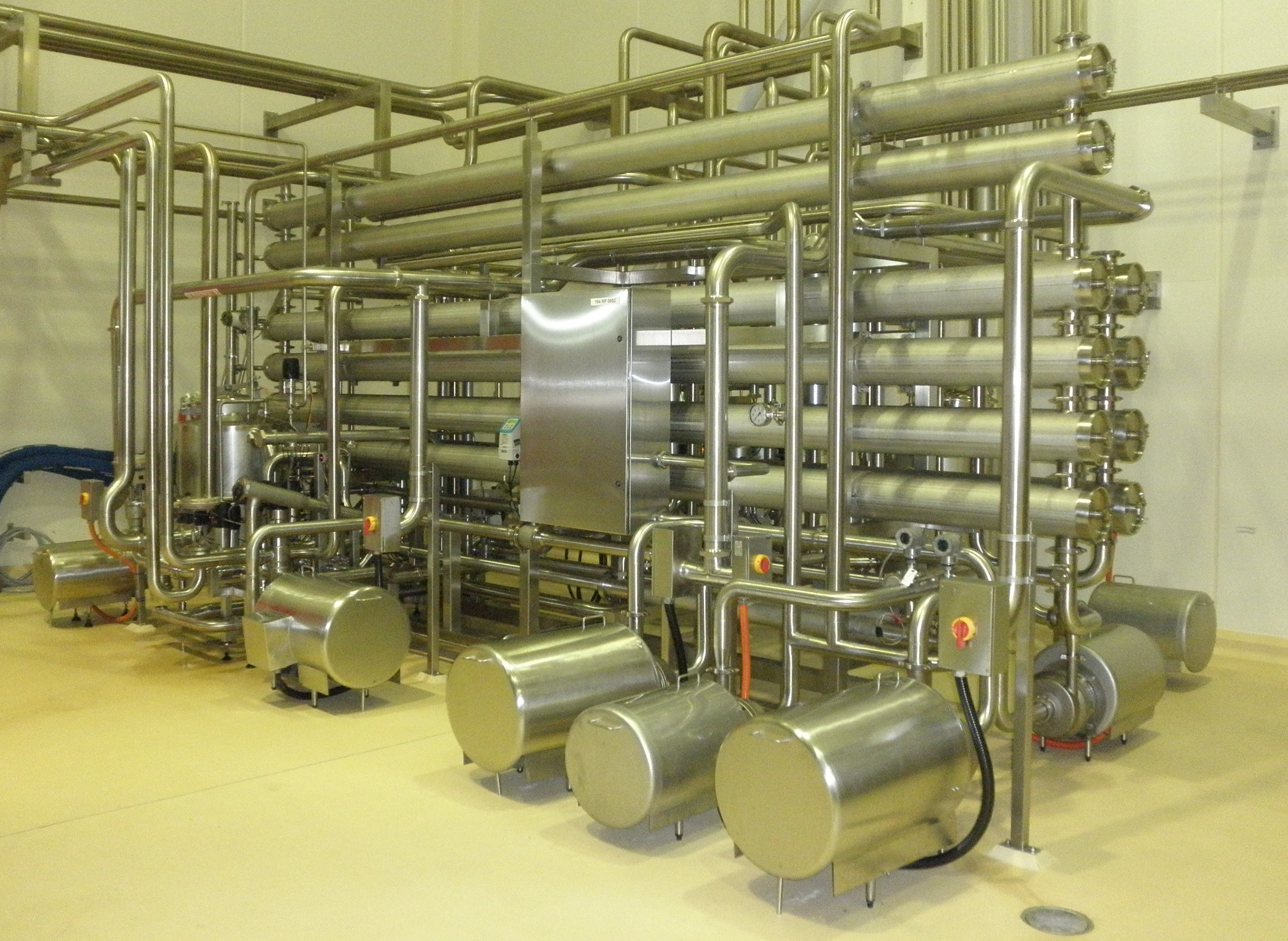
Condensate Recovery
Evaporator condensate is an excellent source of re-use water. In the Dairy Industry, the water removed during the evaporation of milk can be captured. This water is mainly of good quality, with low TDS and low solids. However, it does contain organic contaminants, odour and BOD. These contaminants combine to make the condensate unsuitable for use in all but the lowest grade applications. However, if the condensate is processed through a special reverse osmosis (RO) plant, the quality can be improved markedly. A simple post treatment can then make the “polished” water suitable for widespread re-use.
Industrial Water Recovery
All sorts of other industrial streams are available for recovery and use. Some of the streams we have treated include: nanofiltration permeate (with high BOD, sugars and TDS); mine wash water (high TDS); pulp and paper wastewater (high colour and TDS).
Water From Effluent
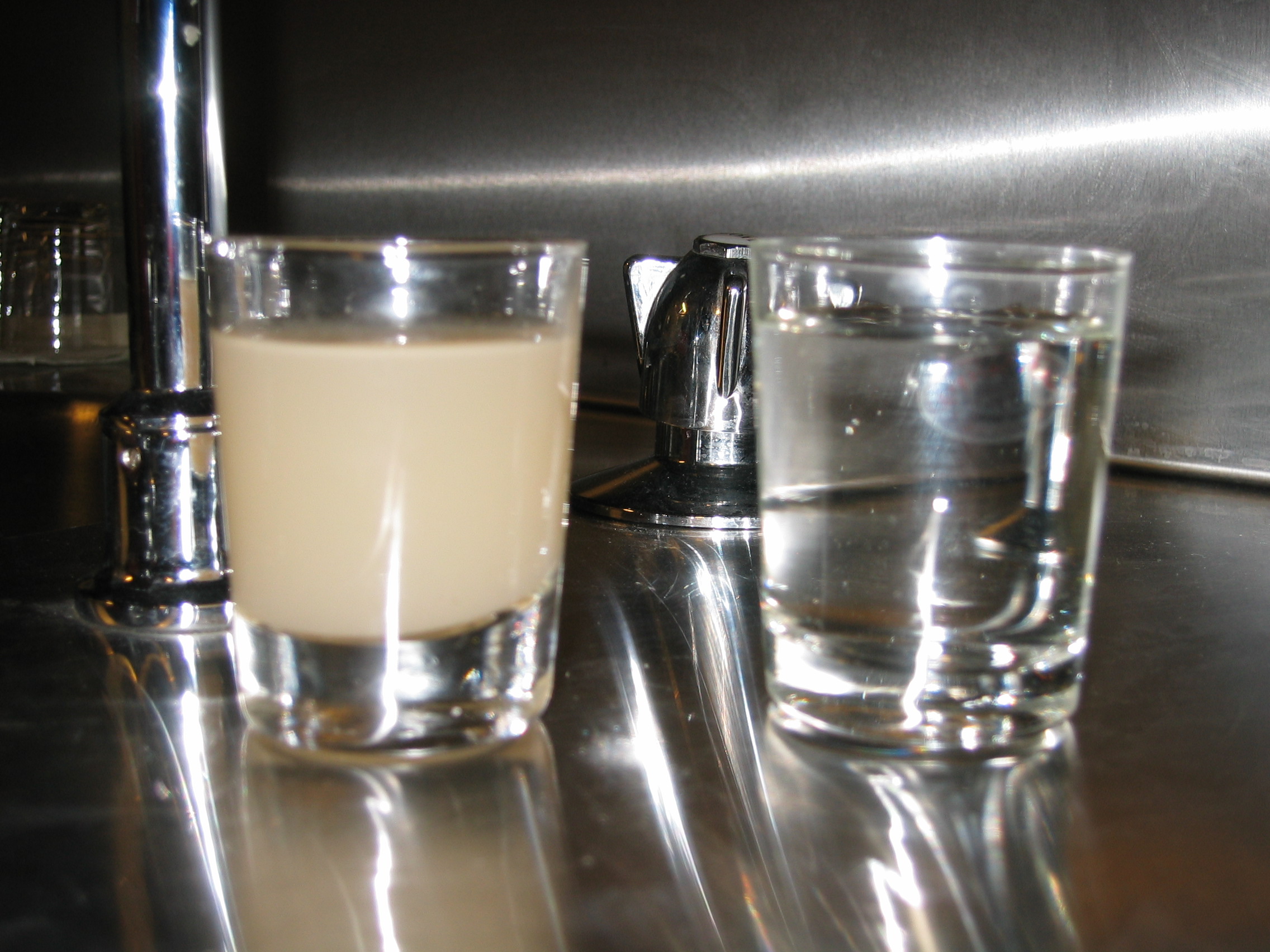 Both municipal and industrial effluents are now valid sources of re-use water. Some of the streams suitable to recover water from include: “end-of-pipe” cheese factory effluent; municipal effluent (sewer mining); MBR treated wastewater; secondary effluent (ex conventional wastewater treatment); DAF, IAF, Jetflote treated wastewater.
Both municipal and industrial effluents are now valid sources of re-use water. Some of the streams suitable to recover water from include: “end-of-pipe” cheese factory effluent; municipal effluent (sewer mining); MBR treated wastewater; secondary effluent (ex conventional wastewater treatment); DAF, IAF, Jetflote treated wastewater.
Seawater Desalination
With Australian rainfall consistently declining, seawater desalination is a realistic option as a secure potable water source. This is particularly true for remote locations or specific industrial sites. Plants in the size 100 kl/day to 1 Ml/day are large enough to be viable, but small enough to bypass some of the perceived negatives around seawater extraction and concentrate discharge.
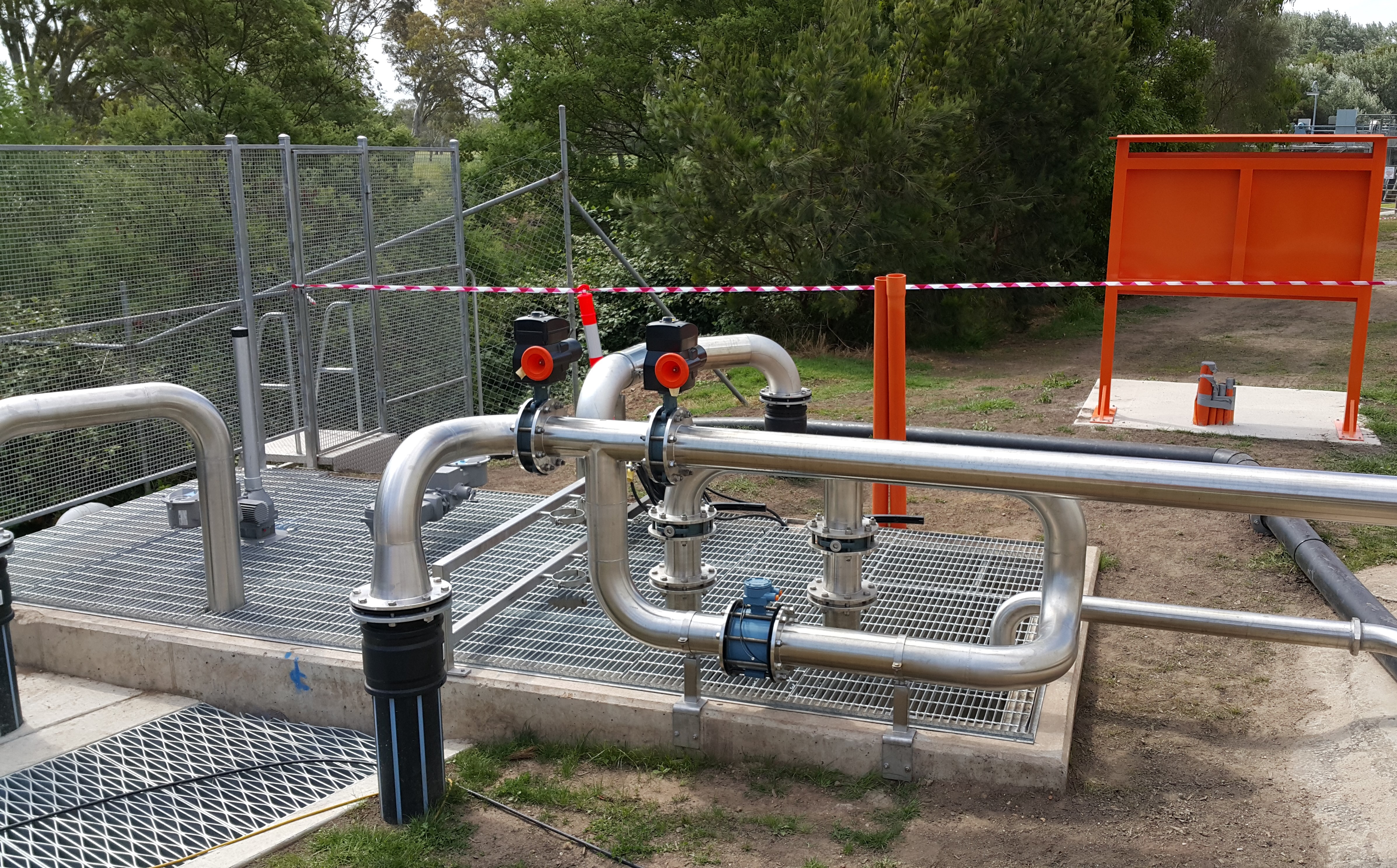
Discharge Protection
Site Environmental protection measures may include management of discharge, this to prevent river or ground water contamination during high flow events. EPI discharge flow management can ensure safety for ecologically sensitive sites.
Membrane Degasification
Membrane contactors can be used to remove or control oxygen levels, carbon dioxide levels and nitrogen levels in water and other solutions. The time it takes to degas a solution is greatly reduced due to the large surface area the Hollow Fiber Membrane provides for gas transfer versus the traditional vacuum degassing tank.
The biggest applications are to:
- reduce scale in boilers (reduce oxide formation)
- improve quality of and extend beverage shelf life
- CO2 removal to improve ion exchange performance
- remove carbon dioxide from water without any chemical pH adjustment
- ink debubbling (improve application), photographic solution degassing
Engineering Services
At EPI we take a practical, process engineering approach to solving site water and discharge issues. We believe that we cannot provide an optimal solution without understanding the process. In fact, often process enhancements can be the most cost-effective actions.
We typically use a site investigation to identify the issues, including financial and regulatory drivers. By applying EPI experience, engineering and technology knowledge, mixed with site expertise and common sense, a site water strategy and/or site effluent strategy can be prepared.
This strategy might encompass in-process, product mix, services, management and end-of-pipe solutions. Ideally a 5-year strategic plan is developed, with an annual staged implementation to fit within financial and regulatory constraints. Implementation can be site driven, or EPI can contribute further.
